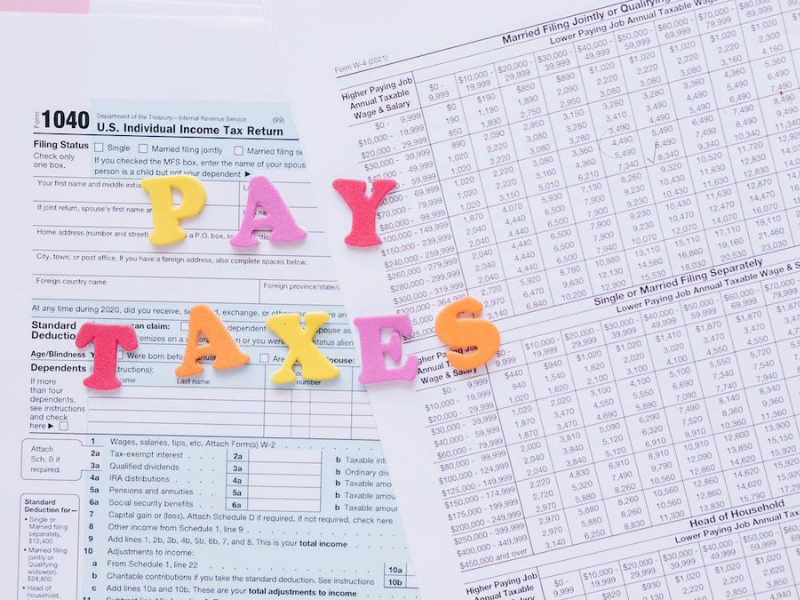Eligibility for IRS Innocent Spouse Relief: A Detailed Overview
Taxes, tax liability, and tax law in general are more complicated than you could imagine. If you ever found yourself in a sticky situation with the IRS due to your current or former spouse’s tax mistakes or misdeeds, you might’ve heard of Innocent Spouse Relief.
This program provides equitable relief to taxpayers who find themselves burdened with additional tax liabilities due to errors their current or former spouses made on joint tax returns. When a spouse understates taxes, the innocent partner may suffer the consequences unknowingly. The Internal Revenue Service (IRS) offers this option to eligible individuals to protect them from unjust financial repercussions.
To understand the process thoroughly, we’ll explore the legal definition, implications, and eligibility criteria associated with Innocent Spouse Claim. We’ll dive into the ins and outs of IRS Innocent Spouse Relief, a potential lifeline that could save you from bearing the burden of your partner’s tax woes.
You may also like: Tax Relief Programs: Your Essential Guide to Financial Reprieve
Exploring IRS Innocent Spouse Relief: What Does It Mean?
Innocent Spouse is a provision within the tax law that allows a taxpayer to request relief from tax liabilities resulting from errors or understatements made by their spouse on a joint tax return.
The relief applies solely to taxes due on the spouse’s income from employment or self-employment. It does not cover taxes related to the individual’s income, household employment, business taxes, tax deductions, or trust fund recovery penalties for employment taxes.
It is crucial for taxpayers to be aware of the conditions that might make them eligible for Innocent Spouse Relief.
Eligibility Criteria for Innocent Spouse Relief: Know If You Qualify
There are certain criteria that must be met to determine if one is eligible for Innocent Spouse Relief. In this section, we’ll briefly tackle those factors. These criteria include the following:
- Filing a Joint Tax Return: Eligibility requires filing a joint tax return with the spouse in question.
- Tax Understatement Due to Errors: The tax liability must result from erroneous items or understatement of tax on the joint tax return.
- Lack of Knowledge About Errors: The innocent spouse must prove that they did not know the errors or understatements made by their spouse on the tax return.
- Residing in a Community Property State: The innocent spouse should live in a community property state to qualify for the relief.
Errors leading to tax understatements include unreported income, incorrect deductions or credits, and for inaccurate asset values. When spouses file joint tax returns, they are jointly and severally liable for the tax, interest, and penalties due.
This is regardless of future changes in marital status or divorce decrees, domestic violence, or spousal abuse, stating otherwise, per the IRS. However, certain situations might disqualify individuals from joint liability and claiming relief.
Unawareness of Spouse’s Erroneous Item
One criterion that might qualify an individual for Innocent Spouse Relief is the lack of knowledge about a spouse’s incorrect item on the joint tax return. In these cases, the innocent spouse genuinely had no awareness of the error or omission.
Because they had no knowledge of this error, the IRS believes it is unjust to hold them responsible for the additional tax liability. The IRS considers this factor seriously and assesses the circumstances of each case to determine if the claim for relief is valid.
For instance, consider a situation where the innocent spouse had no involvement in managing the couple’s finances or preparing the tax return. If the other half with primary financial responsibility intentionally failed to disclose a source of income or claimed improper deductions, the other spouse, might qualify for Innocent Spouse Relief.
However, providing substantial evidence to support the lack of knowledge and involvement in the tax return preparation process is essential.
Divorce or Separation Status
Another factor influencing Innocent Spouse Relief eligibility is the divorce or separation status of the couple. The IRS considers the marital status when requesting relief to assess the individual’s qualifications.
The spouses are equally responsible for the tax liability if they are still legally married. However, if divorced or legally separated, the innocent spouse might be eligible for relief by paying additional taxes under certain conditions.
For example, if a couple filed a joint tax return while still married, and one partner understated taxes intentionally without the other’s knowledge, leading to a significant tax liability after the divorce, the innocent spouse might qualify for relief. The IRS carefully examines the timing of the divorce and the tax return filing to determine eligibility under this criterion.
No Transfer of Assets
The absence of asset transfer between spouses also plays a role in Innocent Spouse Relief eligibility. If no assets were transferred between the spouses who owe tax together, it might indicate a lack of financial cooperation, making it plausible that the innocent spouse had no involvement in or knowledge of the understated taxes.
For instance, consider a couple who filed a joint return. However, all income, assets, and financial responsibilities were entirely separate. In that case, those who request innocent spouse relief might be able to demonstrate they had no part in the errors leading to tax understatement.
The IRS reviews the financial transactions and asset transfers between each spouse to make a fair determination regarding Innocent Spouse Relief.
You may also like: IRS Penalty Relief: Your Comprehensive Guide to Reduce Financial Burden
Steps to Apply for IRS Innocent Spouse Relief
To apply for Innocent Spouse Relief, taxpayers must follow specific steps and provide the necessary documentation. The application process involves the following:
1. Filling Out IRS Form 8857
The first step is to complete IRS Form 8857, Request for Innocent Spouse Relief. The form requires detailed information about the taxpayer, spouse (or ex-spouse), and the circumstances surrounding the tax and liability relief.
2. Submitting the Form and Necessary Documentation
After completing Form 8857, the taxpayer must submit it to the IRS. Additionally, the spouse who filed the form must provide supporting documentation to strengthen the claim for relief. These documents might include tax returns, financial records, and evidence demonstrating the lack of knowledge or involvement in the understated taxes.
3. Understanding IRS Response Time and Potential Outcomes
Once the IRS receives Form 8857 and accompanying documentation, they will review the case. The expected response time from the IRS may vary. Still, taxpayers should be prepared for a reasonable waiting period. The IRS will evaluate the eligibility criteria and the evidence provided to make a decision.
4. Appeal a Decision
Should the IRS denies the request for Innocent Spouse Relief, taxpayers can appeal the decision. This involves providing additional information or clarifications that could affect the outcome.
The appeal process starts by filing Form 9423, Collection Appeal Request. In the form, you’ll detail the reasons you disagree with the IRS’s decision, providing as much evidence as you can to support your case. You need to submit this form within 30 days of receiving the denial letter.
If your request for relief was rejected because you missed the two-year filing deadline, you can resubmit Form 8857 instead. However, the IRS will only reconsider your case if you provide a reasonable cause for the delay.
During the appeal process, ensure all your tax filings are up-to-date, as this demonstrates compliance and good faith. It may also be helpful to seek advice from a professional to increase your chances of a successful appeal.
You may also like: Exploring Deductible Taxes: Your Key to Smarter Financial Planning
Conclusion
Understanding your eligibility for IRS Innocent Spouse Relief is crucial to protect yourself from unjust tax liabilities resulting from your spouse’s errors or understatements on a joint tax return. This comprehensive guide has highlighted the significance of Innocent Spouse Relief in tax laws and explained the eligibility criteria in detail.
It is essential to explore the legal definition and implications of Innocent Spouse Relief, the steps to apply for relief, and the potential outcomes. Being well-informed and taking the necessary steps can help you seek relief and avoid undue financial burdens imposed by your spouse’s tax errors.
Remember, if you face your spouse’s tax liabilities, you don’t have to face it alone. Contact a tax professional or attorney for free consultation to guide you through the process and increase your chances of a successful claim.
It’s time to take control of your financial destiny and pave the way to freedom from the burdens of someone else’s mistakes. Best of luck on your journey, and may you find the relief you deserve!
Frequently Asked Questions (FAQs)
Can I apply for Innocent Spouse Relief even if I am no longer married to the individual who caused the tax liabilities?
Absolutely! Your marital status at the time of application doesn’t affect your eligibility for Innocent Spouse Relief. You can apply for spousal relief even after divorce or separation if you meet the other criteria.
What if the IRS grants my Innocent Spouse Relief claim? Will my spouse be left holding the entire tax debt?
Not necessarily. If you qualify for Innocent Spouse Relief, the IRS will absolve you if you owe taxes associated with your spouse’s erroneous reporting or fraudulent activities. However, your spouse will be solely responsible for the remaining tax debt.
Can Innocent Spouse Relief protect me from future tax debts caused by my spouse?
No, Innocent Spouse Relief only applies to tax liabilities from the years you seek relief. It does not protect you from potential tax debts in the same taxes in the future.
Will filing for Innocent Spouse Relief automatically trigger an IRS audit?
Filing for Innocent Spouse Relief itself does not trigger an audit. However, the IRS will review your application thoroughly, which may involve some scrutiny of your financial records. You shouldn’t worry about an audit if you have valid evidence to support your claim.
Can I apply for Innocent Spouse Relief if I knew about my spouse’s tax mistakes but did not benefit from them?
It depends on the specifics of your situation. Innocent Spouse Relief typically requires that you have no knowledge or reason to know about the errors or fraudulent activities. However, if you demonstrate that you were an innocent party and did not benefit from your former spouse’s actions, you might still be eligible for relief.





